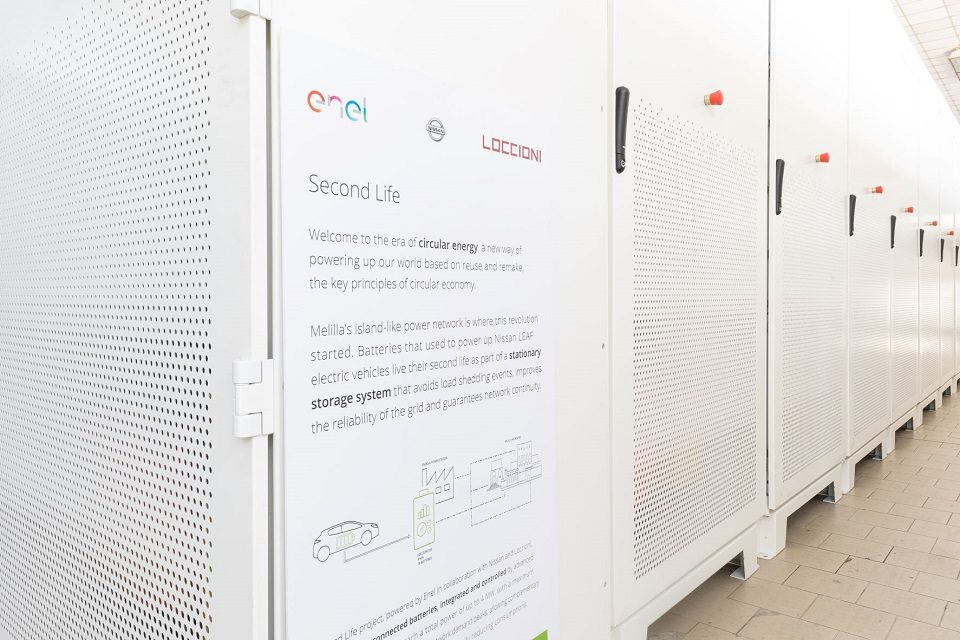Enel launched storage system for used EV batteries in Spain

Enel started operating its “Second Life” project, which combines 78 Nissan electric vehicle batteries, of which 48 are disused and 30 are brand new for performance comparison, at a conventional power plant in Melilla operated by Enel’s Spanish subsidiary Endesa.
The Second Life project is a pioneering initiative in Europe, based on circular economy principles, and selected as a “member initiative” by the World Economic Forum (WEF). The project uses electric vehicle batteries as a source of energy, interconnecting and storing them at Endesa’s Melilla facility. The Second Life project has a capacity of 4 MW and can produce up to 1.7 MWh. Should the power plant be disconnected from the system, the storage facility can inject energy into Melilla’s electricity grid for 15 minutes, which is enough time to reset the system and restart the power supply.
Salvatore Bernabei, CEO of Enel Green Power, said: “The development of storage technology is key if we want to foster greater renewable penetration in our energy systems, so we can truly shape the power generation of the future. Furthermore, in the Enel Group, we are strongly committed to using technology that complies with the principles of sustainability and circularity. Specifically, this project demonstrates that, in line with the Open Innovation principles, we can find solutions for the management of the end of life of essential equipment such as batteries, a topic which is at the core of the sustainable energy issue.”
Ernesto Ciorra, Enel Group’s Chief Innovability® Officer, said: “This is a project we have strongly believed in since day one. We involved important partners alongside counting on the relentless dedication of our colleagues and on a real, operating plant where we could implement storage solutions through second life batteries. And what would have been called impossible only a few years ago became possible, became real.”
The Second Life project was developed by Enel in collaboration with Nissan, which provided the batteries, and Loccioni, a system integrator, which secured proper integration between batteries. The project leverages on advanced technology based on a simple idea: once the useful life of a battery within an electric vehicle has come to an end, these batteries are recycled and assembled in a large stationary storage system. This system is integrated with Endesa’s Melilla facility in order to avoid load shedding events, improve the reliability of the grid and secure the continuity of network service to the local population.














